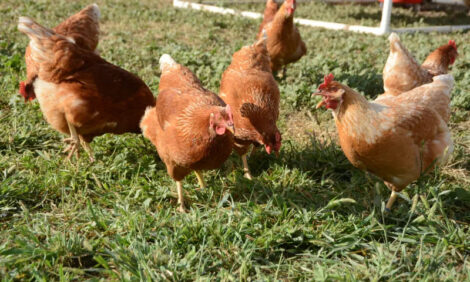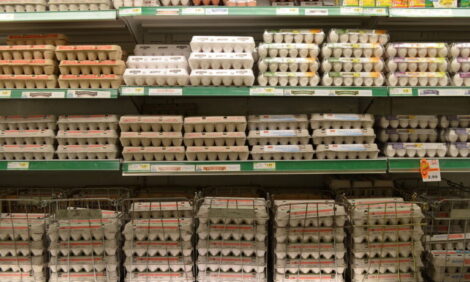



African poultry industry set for 4.7% compounded annual growth
Industry says Africa could become the next Brazil if such predictions are rightAfrica’s poultry industry is set for strong growth over the next decade, according to estimates by the Netherlands-based Rabobank. It says the industry could grow at a compound annual rate of approximately 4.7% from a current valuation of US$25bn, with markets such as South Africa, Nigeria, Algeria, Ethiopia, and Morocco leading the charge. Industry partners such as biotechnology firm Alltech Africa have gone as far as suggesting that Africa could be the next Brazil when it comes to poultry production. The South American republic is the largest exporter of chicken meat.
Rabobank’s assessment shines a positive light on what has been an industry mired by underfunding, disease, and regulatory wrangles. Investors have typically shied away from the continent’s poultry industry due to its perceived volatility from the demand and supply side. According to the World Bank, chicken remains a luxury good across dozens of markets on the continent given low income levels. As such, demand is income elastic. Disruptions to the poultry value chain have also been pronounced, particularly by way of constraints to the supply of feed. Historically, precarious agricultural output – due to drought – has raised concerns over the supply of chicken feed, which typically consists of a mix of various grains, soybean, prebiotics, probiotics and other micronutrients. More recently, similar doubts have been raised by coronavirus-induced logistical obstacles, the conflict in Ukraine, and India’s decision to suspend wheat exports.
Africa’s poultry industry – like others across the globe – has also been susceptible to outbreaks of avian influenza. For example, in South Africa’s most recent large-scale outbreak in early 2021, nearly 2.7 million broiler and egg birds were culled due to an influenza outbreak, resulting in losses upwards of US$100m. Dumping by major global players has also posed a risk to the continent’s poultry sector. Stakeholders in markets such as South Africa, Cameroon, Senegal, Cote d’Ivoire and Ghana have previously taken issue with the influx of poultry products from the likes of Brazil and the European Union. This has prompted South Africa to go as far as imposing dumping duties on products from Brazil, Ireland, Denmark and Spain.
Nevertheless, there is optimism that rapid urbanisation, income growth, demand for fast food and improvements to distribution and retail networks will drive up the consumption of poultry products across the continent. This is reflected by the rapid expansion of the Kentucky Fried Chicken (KFC) company; the fast-food outlet has doubled its footprint Africa over the last decade, going from a presence of less than ten countries in 2011 to 22 this year. In June, Dubai-based halal fast-food chain ChicKing is set to open its first of what is expected to be 30 outlets in Kenya over five years.
Asian engagement in Africa’s agriculture industry – and poultry in particular – is still limited in scale. However, the opportunity inherent in the continent’s poultry industry has not gone unnoticed by Asian stakeholders A young Singaporean entrepreneur, Shumei Lam, has been running a a poultry farm in Rwanda for many years. Chinese poultry farmers have been running pig farms in places like DRC and during Forum on China-Africa Cooperation held in Senegal in November 2021, the poultry industry was flagged as an area of specific interest.
Policy-wise, Africa could borrow from a Chinese model that has facilitated more inclusive growth in the East Asian market. This involves the integration of small producers in the value chains of larger so-called dragonhead enterprises; in turn, the smallholders benefit from sustained demand and market exposure. A growing African poultry market also presents an opportunity for the export of technology by experienced Asian counterparts from medicines, to rearing techniques, processing machinery to storage facilities.
Finally, in establishing a more concrete partnership with African poultry stakeholders, Asia will also have leverage to negotiate more favourable export terms. And deeper ties in the industry could serve as a gateway to a more expansive partnership in Africa’s broad agricultural domain.








